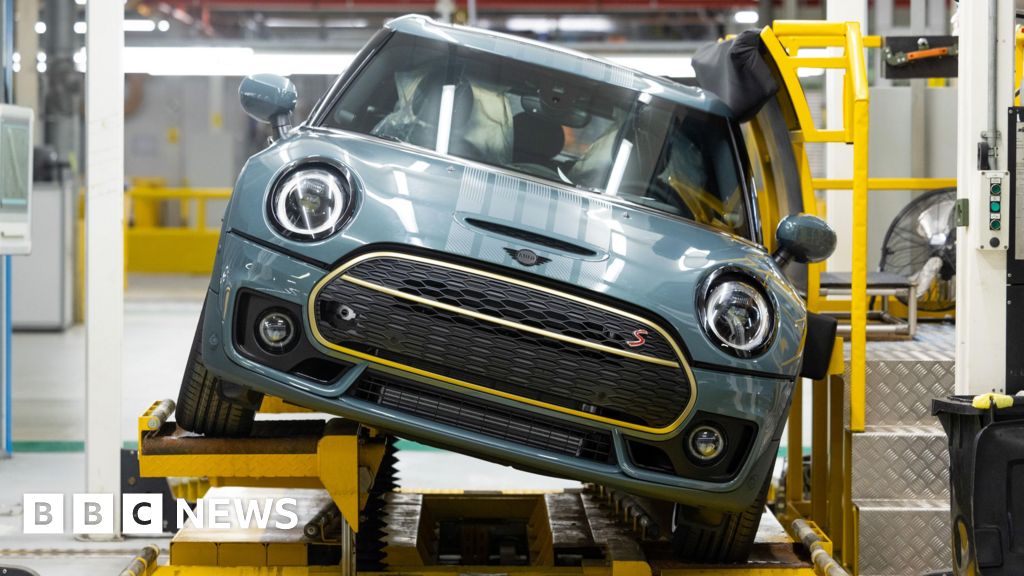BMW, Jaguar Land Rover (JLR) and Volkswagen (VW) used parts made by a supplier on a list of firms banned over alleged links to Chinese forced labour, a US congressional report has said.
At least 8,000 BMW Mini Cooper cars were imported into the US with components from banned Chinese firm Sichuan Jingweida Technology Group (JWD), according to the report by Senate Finance Committee chairman Ron Wyden’s staff.
“Automakers’ self-policing is clearly not doing the job,” the Democrat Senator said.
BMW said it had “strict standards and policies regarding employment practices, human rights, and working conditions, which all our direct suppliers must follow”.
It added it had taken steps to “halt the importation of affected products and will be conducting a service action with customer and dealer notification for affected motor vehicles”.
Jaguar Land Rover told the BBC it “takes human rights and forced labour issues seriously and has an active ongoing programme of human rights protection and anti-slavery measures”.
VW did not immediately respond to a request for comment.
Mr Wyden also urged the US Customs and Border Protection agency to “supercharge enforcement and crack down on companies that fuel the shameful use of forced labour in China”.
The report added Jaguar Land Rover had imported spare parts which included components from JWD after the company was put on the banned list.
JLR said it has now identified and is destroying any stock it holds around the world that include this component.
In February, VW said thousands of its vehicles, including Porsches and Bentleys, had been held by authorities because they had a component in them that breached America’s anti-forced labour laws.
VW had voluntarily informed customs officials about the issue, the report said.
Congress passed the Uyghur Forced Labor Prevention Act (UFLPA) into law in 2021.
The legislation is intended to prevent the import of goods from China’s north-western Xinjiang region that are believed to have been made by people from the Uyghur minority group in forced labour conditions.
JWD was added to the UFLPA Entity List in December 2023, which means its products are presumed to be made with forced labour.
China has been accused of detaining more than one million Uyghurs in Xinjiang against their will over the past few years.
Authorities have denied all allegations of human rights abuses in Xinjiang.
“The so-called Uyghur Forced Labor Prevention Act by the US is not about forced labor but about creating unemployment. It does not protect human rights but, under the guise of human rights, harms the survival and employment rights of the people in Xinjiang," Chinese Foreign Ministry spokesperson Wang Wenbin said.
"China strongly condemns and firmly opposes this. We will take measures to resolutely safeguard the legitimate rights and interests of Chinese enterprises.”



Forced labour in Chinese prisons isn’t limited to Xinjiang, nor to the car industry. A lot products we use in Europe and North America and elsewhere around the globe are made by Chinese prisoners forced to work under catastrophic conditions.
There is strong evidence for this provided by many independent sources, among them a documentary by Arte (a French-German media outlet). If interested:
Forced Labour - SOS from a Chinese Prisoner – (documentary, 95 min.)
(And, yes, prison labour exists also in the U.S., and it is as evil, but this doesn’t make the autocratic Chinese government any better.)